As it shifts to a new generation of “affordable” EVs, Ford Motor Co. will delay two other battery-electric projects, including the next-generation F-150 Lightning pickup. It may also look at adding hybrids and other products to what was supposed to be the all-electric Blue Oval City manufacturing complex outside Memphis, reports Headlight.News.
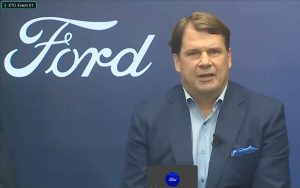
Ford CEO Jim Farley says company will have a “Model T Moment” as it preps a new family of “affordable” EVs.
Ford Motor Co. will push back the rollout of two battery-electric vehicles set to be assembled at its new Blue Oval City manufacturing complex near Memphis until at least 2028, the automaker confirmed.
It marks the latest delay for what’s meant to be replacements for today’s full-size F-150 Lighting pickup and E-Transit vans. And the move comes as the Detroit automakers shifts focus to a new line of “affordable EVs” being developed as part of a skunkworks program CEO Jim Farley set up in Long Beach, California last year. The executive plans to announce details of that program on Monday Aug. 11, saying Ford is set to have a “Model T Moment.”
The shift in Ford’s EV product strategy is also expected to see the automaker rethink plans for the massive Tennessee assembly complex which was originally billed as the centerpiece of a $5.6 billion investment in battery-electric vehicle manufacturing. With EV sales slowing, said several sources, Ford may wind up revising the factory’s layout to handle more than just all-electric models.
Further delays
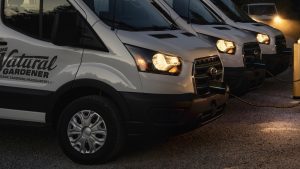
Ford has again delayed the replacement for both the E-Transit, shown here, and the F-150 Lightning, at top of story.
When Ford first debuted the battery-electric Lightning in 2021 demand for EVs was soaring. U.S. sales rose roughly eightfold between 2019 and 2023 before starting to flatten out. That, and growing pressure from Washington, led many manufacturers to lay out aggressive plans to go all-electric. Ford quickly put Lightning into production, along with the E-Transit and the Mustang Mach-E.
But it has since pulled back from some plans, including the development of two three-row electric SUVs. The next-gen Lightning and E-Transit have now seen repeated delays, noted Automotive news. The van, for example, was originally expected by “mid-decade,” the updated pickup by late 2025. The publication quoted suppliers telling it the pickup was pushed back to 2027 and now isn’t expected to roll out of Blue Oval City until sometime in 2028.
“F-150 Lightning, America’s best-selling electric truck, and E-Transit continue to meet today’s customer needs,” a Ford spokesperson told the trade publication in a statement – subsequently supplied to Headlight.News. “We remain focused on delivering our Ford+ plan and will be nimble in adjusting our product launch timing to meet market needs and customer demand while targeting improved profitability.”
What about Blue Oval City
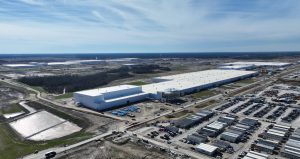
Ford is delaying or slowing down a number of EV projects, including the huge Blue Oval City complex going in near Memphis.
When it was first announced, Ford billed Blue Oval City as the largest manufacturing project in its history. At 3,600 acres, it was set to dwarf the original River Rouge complex set up by company founder Henry Ford I. And the Tennessee operation’s on-site battery plant was to be backed up by a separate battery factory in nearby Kentucky.
As a result of the delays with Lightning and E-Transit, Ford has already slowed work at both locations, “pushing things out, hoping the EV market will pick up and help them pay back their investment,” said Sam Fiorani, chief analyst with AutoForecast Solutions.
Even if Blue Oval City does get up and running in 2028, Fiorani added, it “will be an underutilized facility for years unless they find some non-EV products to go in there.” Echoing what several other sources have now indicated on background, Fiorani said, “We’re hearing that possibility” Ford will expand the capabilities of the Tennessee operations so it can handle “either hybrids or extended-range models.”
More Ford News
- Ford Has a “Model T Moment” Coming, Says CEO Farley
- Ford Sets Auto Industry Recall Record
- Chinese Automakers Pose Growing Risk, Warns Farley
Hybrids and E-REVs
Ford wouldn’t be the first to follow that approach. When Hyundai began setting up its Georgia Metaplant it said it would be dedicated solely to EV production. By the time it began operations late last year it was retooled to include hybrids and plug-in hybrids, a move meant to keep it operating profitably.
Last month Farley appeared to confirm this, noting during an earnings call that, “We are moving from being the dominant player in truck hybrids in the U.S. to offering EREVs, PHEVs, and a full range of hybrids across our lineup, especially our bigger vehicles,” Farley
A Model T Moment
During Ford’s second-quarter earnings call, Farley said the automaker was rapidly moving ahead with the development of new affordable EV models. Headlight.News has been told the company is likely to roll out three initially, including a compact SUV and a pickup sized somewhere between the gas-powered Maverick and Ranger models.
Farley has described the electric pickup as a “marvel of simplification.” It’s widely expected Ford’s goal is to reduce not only the number of model variants it offers but slash the number of parts and components in future EVs, in the process reducing labor costs. One way may be following Tesla’s model using aluminum “gigacastings” that can each replace dozens, even hundreds of individual stamped steel parts.
The goal is to revolutionize the manufacturing process, much as Ford’s founder did with its first Model T assembly line in 1913.
In turn, that will help drive the cost of an EV down to what buyers now pay for gas models, possibly even lower, Ford is betting.
“We think that that’s really what customers are going to want long term,” The CEO said during the earnings call.

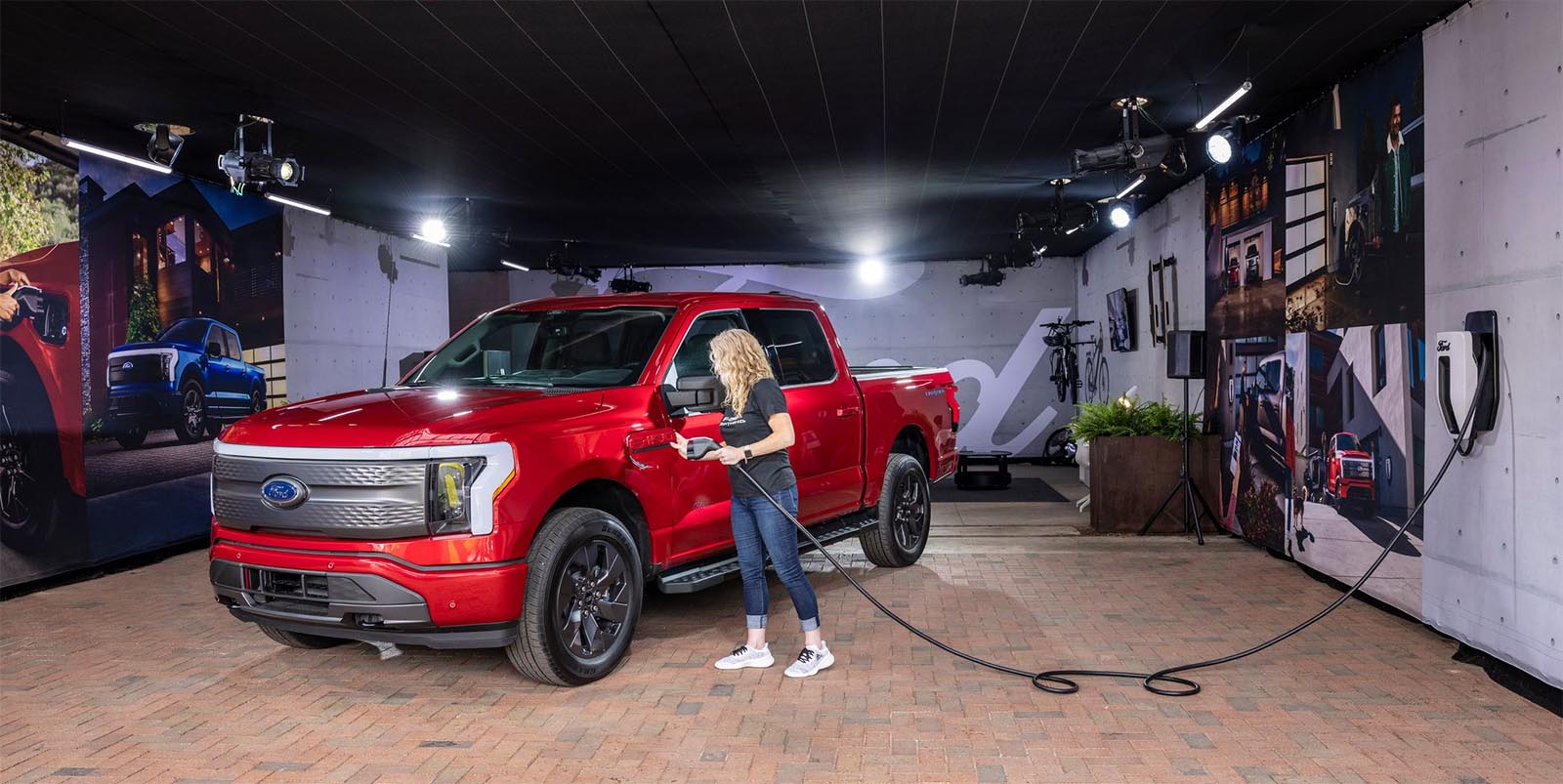
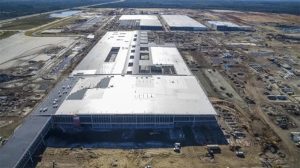
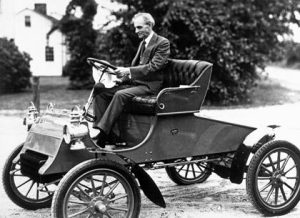
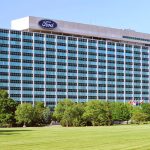


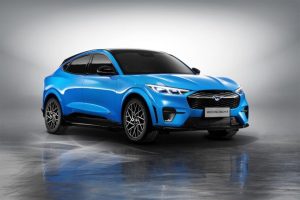
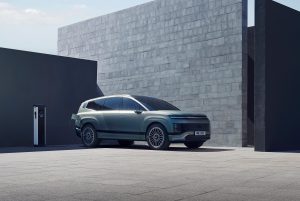
0 Comments